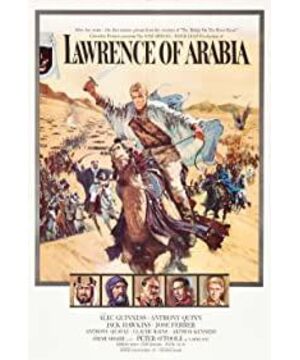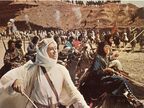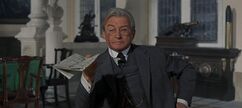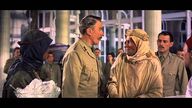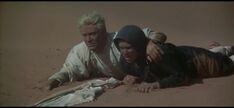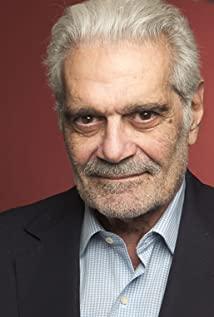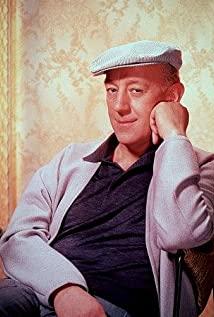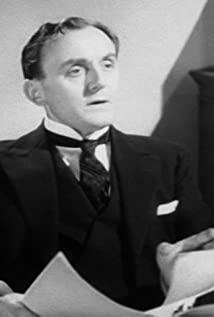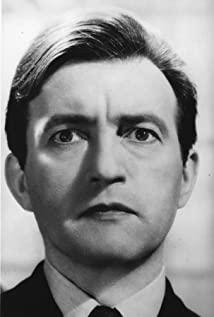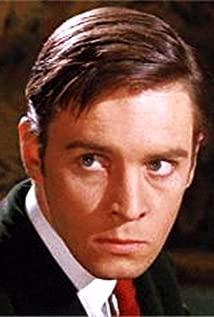The film "Lawrence of Arabia", with multiple edited versions exceeding 200 minutes, can be regarded as a "long-length production". Even if I think this is a good movie after watching it, I must admit that it is a bit tiring to spend two days watching it and then trying to understand the magnificent and profound meaning.
There are many contradictions in the world, just as Thomas Edward Lawrence-whether he wants or not-is an illegitimate son abandoned by his biological father. However, his rich educational experience has allowed him to grow into an outstanding archaeologist and traveler.
In World War I, Lawrence was an officer of the British Army Arab Bureau, and his words and deeds seemed so strange and weird among his colleagues.
The lead of the story is unfolded by a military mission.
It's hard to say whether such a person gets such a task doomed or accidental. It's just that when Lawrence embarks on the itinerary, he has already begun to write a preface to a romantic book. Leaving the barracks, Lawrence fully enjoyed Hanzhi's arid climate.
In the camp of Arab leader Faisal, the conversation between the newcomer Lawrence and the others was quite dramatic. Some interceptions, but still some length:
Colonel Brighton (Faisal's British military adviser, colonel rank): I want a decision, sir.
Faisal: You want me to fall back on Yenbo.
Colonel Brighton: Well, you're not doing much good here, sir. I'm sorry to rub it in, sir, but we can't suppy you here.
Faisal: You could suppy us through Aqaba!
Colonel Brighton: Aqaba? If you can get ahold of Aqaba, we can supply you. But you can't!
Faisal: You could.
Colonel Brighton: You mean, the navy? The Turks have 12 inch guns at Aqaba, sir. Can you imagine what that means?
Faisal: Yes, I can imagine…
……
Colonel Brighton: Upon my word, sir, you're ungrateful. Fall back on Yenbo and we will give you equipment. Give you arms, advice, traning, everything .
……
Faisal: Yes, lieutenant? What do you think about Yenbo?
Lawrence: I think it is far from Damascus.
Colonel Brighton: We'll have you in Damascus, sir. Never fear.
Faisal: Have you been in Damascus, Mr. Lawrence?
Lawrence: Yes, my lord.
Faisal: It is beautiful. Is it not?
Lawrence: Very.
Colonel Brighton: That will do! Dreaming won't get you in Damascus, but discipline will. Look, Great Britain is a small country, much smaller than yours. Small population compared with some. It is small, but it's great. And why?
Ali: Because it has guns.
Colonel Brighton: Because it has discipine!
Faisal: Because it has a navy, because of this, the English go where they please and strike where they please. This makes them great.
Lawrence : Right.
Colonel Brighton: Mr. Lawrence, that will do! Lawrence is not your military adviser.
……
Lawrence: My lord, I think… I think your book is right. The desert is an ocean in which no oar is dipped. On this ocean, the Bedu go where they please and strike where they please. This is the way the Bedu has always fought. You're famed through the world for fighting this way. And this is the way you should fight now.
……
Lawrence, who left the camp, pondered for a night, and announced that he would lead 50 Arabs through the death zone in the Nevd Desert. Aqaba, an important coastal town of the Turkish army.
There are many contradictions in the world. The rivalry or alliances of British, Turkish, Arab and other forces belong to the political category and have nothing to do with it. However, how white people from the civilized Christian world integrate themselves into the dark-skinned Muslim barbarians from their hearts and actions is really puzzling. It is impossible to know where the British lieutenant on the mission decided to fulfill the mission he had conceived from on his journey; but obviously, for a full romantic, such doubts seem meaningless.
During the journey, Lawrence changed into Arab costumes for the first time and ran and danced in the yellow sand ecstatically and almost madly. Easily put behind all the natural and social factors that originally imprisoned mankind, and played another role.
In addition to ignoring all the traditional shackles, Lawrence seems to be very calm in dealing with the issue of his own life or death. Otherwise, he would not return to the desert hinterland alone to look for the lagging members, nor would he leave behind two words of "Moses did" after taking Aqaba and then resolutely decided to take only two underage entourages across the Sinai Peninsula. Go to the British Command in Cairo for support.
The American journalist JE Bentley in the film is based on Lovell Thomas. In the film and history, it was his reportage that made "Lawrence of Arabia" and the Arab Uprising a sensation in Europe and America. In the film, Bentley interviewed Lawrence, who had just ended a battle, with two questions:
JEBentley: What, in your opinion, do these people hope to gain from this war?
Lawrence: They hope to gain their freedom. Freedom.
JEBentley : There's one burn every minute. They're going to get it.
Lawrence: I'm going to give it to them. The second question?
JEBentley: Well, I was going to ask what is it that attracts you personally to the desert ?
Lawrence: It's clean.
Lawrence once again demonstrated the fact that he is a pure romantic; and Bantley, a journalist who is more inclined to realism, showed that he was facing the British officer in an Arabian headscarf and white robe. Strong interest in what you do and think. This is probably also the motivation for writing the "Lawrence of Arabia" reportage.
Romanticism does jaw-dropping things, while realism records and understands.
At this point, it should be time for the corresponding title to be written. Whether you want it or not-in the plot and historical facts of the film-Lawrence, a symbol of romanticism, has to bear the image of a tragic person. This kind of sadness began when he was helpless to face up to people's lives and deaths, and intensified after being captured and abused by the Turkish army (possibly being sexually abused), and once caused his mental world to collapse and collapse.
Not only that, after the occupation of Damascus, the Arab Provisional Parliament, which Lawrence advocated, was unable to function. The members of various Arab ministries who were inspired and led by Lawrence before, after a short stay and discussion, just like their traditions, were scattered and scattered.
In the eyes of the Arabs, Lawrence is a legendary hero. But in Lawrence's own view, the rest of all the experience is more of a helpless melancholy.
Thomas Edward Lawrence in history continued to make efforts for the independence of Arab countries at the Paris Peace Conference in a later time that was not described in the film, but most of them were in vain.
During the two times when he joined the Royal Air Force under a pseudonym, he wrote his memoir "Seven Pillars of Wisdom." After retiring, Lawrence lived a reclusive life until his death in a motorcycle accident-as depicted in the opening credits.
This is a romantic story, just like all the vast sceneries, magnificent music, and the protagonist's arrogant but sentimental words and deeds in "Lawrence of Arabia".
This is also a tragic song, gifted by reality to the ideal of romanticism.
end.
All men dream, but not equally. Those who dream by night in the dusty recesses of their minds wake in the day to find that it was vanity: but the dreamers of the day are dangerous men, for they may act their dream with open eyes , to make it possible.
—— Seven Pillars of Wisdom
View more about Lawrence of Arabia reviews


